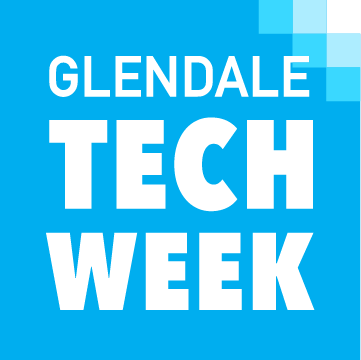Glendale continues forging a path to becoming one of Southern California’s premier regional tech hubs and the launch of the City’s first accelerator, Hero House Glendale, is evidence of the lengths that the City of Glendale will go to to cultivate an ecosystem of innovation and entrepreneurship.
In 2019, the City received a $1 million grant from the State of California to launch and support a Start-Up Accelerator. Two top notch operators were selected to run accelerators in the City. Hero House, backed by their in-house venture capital fund SmartGateVC recently launched its first cohort. We had an opportunity to talk with Hero House’s Director, Armine Galstyan.
Thank you for joining us today, Armine. Let’s kick things off by telling us a little about yourself.
First of all, thank you for having me for the interview.
I started college in 2014, at a time when the tech and startup industry in Eastern Europe was booming. I went to the American University of Armenia and got a bachelor's degree in Business. During my freshman and sophomore years, I spent a lot of my time out of classes, taking short internships and meeting people at the newly launched university startup incubator. Out of this grew a project, which eventually led me into the startup and tech scene of Eastern Europe.
This is when I met the partners of SmartGateVC, a deep tech seed VC fund backed by serial entrepreneurs and notable venture capitalists. I had been planning to work in the banking industry back then. I even accepted a job offer and only to realized later that I was having way more fun working on this project.
The project did not take off, so I went on to join the sales team of one of the leading mobility and transportation startups in Armenia. However, when SmartGateVC was officially launched, I joined the fund as one of the first hires at 19.
Currently, I am the Managing Director of Hero House Glendale. My experience spans from accelerator management to startup advisory, partnerships, and community management. Throughout my work at the Fund, I led SmartGateVC's deep tech incubation and pre-acceleration programs, where I had a chance to work with 100+ early-stage startups and helped entrepreneurs to raise pre-seed funding. At SmartGateVC, I am also part of the investment team with 20 portfolio companies as of March 2021.
We’re excited to have Hero House launch in Glendale. What is your vision for the accelerator and how is it unique compared to other tech accelerators in SoCal?
Hero House Glendale is a technology hub that aims to arm companies with path-breaking technological advancements and scalable business models by connecting business development talent and opportunities in the SoCal area with the deep tech teams in Eastern Europe.
The first phase of the program at Hero House is the GateWay accelerator, where participants go through a 12-week mentorship program focused on establishing their growth framework, refining and validating their sales strategies. This is followed by 8 weeks of on-site customer development and fundraising assistance in Southern California.
The accelerator is uniquely positioned to efficiently leverage the talent and business opportunities of both the North American and European continents. Hero House Glendale goes beyond running only the startup program. The vision of the hub is to consolidate local scientific/engineering potential and smart money around cutting-edge entrepreneurship through various value add partnerships.
Hero House sounds like an exciting opportunity for startups. Break it down for us, how does a startup benefit from participating?
The program uses an individualized approach for addressing companies’ needs and challenges.
Participants have access to a large pool of mentors and industry experts who will prepare them for raising seed funding. Throughout the program, the mentors will guide the companies in sales and growth hacking.
Partnerships with world-renowned companies such as IBM, Zeplin, Flexy, and others, arms founders with the best resources for building their products. The total value of perks exceeds $600K per company. Moreover, companies will receive assistance for setting up highly qualified yet cost-efficient tech teams in Eastern Europe.
After working towards achieving milestones, founders will pitch in front of a carefully selected, 100+ invite-only audience of US investors during “Demo Day”.
What are the types of startups we should look forward to seeing on Demo Day?
As a result of a detailed selection process, 13 companies have been chosen. Investors should look forward to seeing deep tech startups with early traction from industries ranging from healthtech, business intelligence, fintech to entertainment, proptech, and more.
You have worked with 100+ early-stage startups and helped entrepreneurs to raise pre-seed funding – what is the one piece of advice you would give early-stage startups looking for funding?
Target only value-add investors and go after smart money.
I hear that you are going to be a judge at Pitchfest. What tips do you have for our participants to elevate their pitch?
I would recommend that participants keep their pitch within 2.5-3.5 minutes and focus on what differentiates them from the competition. I personally will prioritize and vote for the companies that have teams with strong expertise and background in their industries and are solving substantial problems for big markets.
Why should startups consider Glendale when looking to locate their business?
Glendale has strong foundations to become the next hub for technology and innovation. Talent, quality of life, access to transit, cost-efficient office spaces, and more factors make the City an attractive home for startups.
Glendale is also home to big corporations and tech giants such as Walt Disney Animation Studios, DreamWorks Studios, ServiceTitan, etc., that create a favorable environment for innovation to thrive. In addition to this Glendale, is surrounded by world-class scientific and educational institutions such as USC, UCLA, Caltech, etc. Thus, startups can employ highly-ranked professionals in the Glendale area and collaborate with the universities to utilize the tech research and scientific potential in the area.


